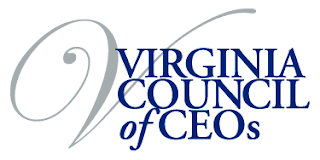What’s Your Safe Haven?
Most of us have one. It may be a river house, an out of the way coffee shop, or just running. Mine is on the river in a canoe or kayak. Even when I take the kids with me, there is something about being part of the flow that recharges me and gives me clarity.
At the Council, we have a very special culture we call “Safe Haven.” It starts in each CEO’s roundtable or forum, where it is clear that we are there to learn from and help each other in an atmosphere of confidentiality and mutual respect. But Safe Haven extends to the larger Council community – now over 160 CEOs and 30 sponsors – where you may end up at lunch with someone you have never met, but you have the mutual understanding that this is not a sales opportunity, but a chance to start learning from one another.
We are proud of this unique culture that gives CEOs a much-needed safe haven. It allows us to connect in meaningful ways, learn from others’ experiences, and get clarity in a complicated world.

VACEOS Member David Bender: Inside the Passion (Part 1)
(Trouble seeing video? Please refresh screen.)
It was a simple challenge, really. But it unleashed a competitive spirit in a youngster and ignited a flame that burns beyond bright to this day.
Weeded! Lawn Service CEO, David Bender explains, “Like a lot of kids, I mowed neighbor’s lawn here and there for some extra cash. It wasn’t long before I had several accounts. When I was 10 my mother challenged me to get enough lawn accounts to pay for a $2,500 mower truck.” So, he did. In a week.
David is a charismatic and quick-witted jokester (as demonstrated at the end of his VACEOS YouTube video at the top of this article).
He also happens to be a very competitive guy — just ask his roundtable team and Member Draft participants. David’s DNA is wired to “crush” the competition or the challenge, but look deeper. There’s something else that drives him besides the will to win.
This article is the first of two stories where we uncover a few of David’s business tactics and management techniques that stoke his passion to excel.
How to Thrive in a Difficult Industry and a Troubling Economy
David reveals working in the “homogenized” landscape service industry isn’t easy. Especially during 2007 and 2008. He says, “The landscape business has a very low barrier to entry. When the recession hit in 2007 and continued through 2008, it seemed like every guy with a truck and 12 foot trailer started a lawn business.” Now competition was nipping at his heels. The question became, how could he compete in this environment where industry pricing is nonelastic?
The answer is what drove the Cornell graduate to a general management position within a national restaurant chain and then later towards ownership of a lawn care company: customer service.
“We need to be as efficient as possible in everything we do. It begins with our communication system — that’s what sets us a part,” says David. His system, designed and programmed in-house, is customer service focused and starts as soon as you call.
Customers actually speak to a live person, an uncommon experience within the industry. After the first conversation, enough information is gathered from the call to create an automatic and systematic communication stream where direct mail and email communications are perfectly-timed and automatically sent. Post-service surveys soon follow.
Complementing David’s communication system is a web-based software system that gives his supervisors in the field the ability to automatically up sales and customer retention levels.
“I think in every industry I think most CEOs would agree, communication solves 99% of our problems,” explains Bender. “Our internal web-based program is a phenomenal customer service tool. As far as I know, we are the only one in industry who uses a system like it.”
David explains, “If a supervisor sees a potential landscape issue he simply enters the note in the application. The customer is automatically notified and quoted. Now, the application becomes a customer communication tool and efficient sales tool.”
Both systems leave the customer feeling attended to and valued and it’s an extremely efficient way to do business.
In our next article, David discusses his new management approach that gives him the ability to step back from his business, “crush” his peers in the industry and excel at customer service.
About David Bender, CEO, Weeded! Lawn Care
David Bender has been an active member of the Virginia Council of CEOs since 2008. He is one of over 120 members who welcome the opportunity to share their business knowledge and concerns each month during member roundtable discussions. To learn more, visit VACEOS Membership.
What Happens in a CEO Roundtable?
Ever wonder what happens in a CEO Roundtable? Sorry. I can’t tell you. It’s confidential. But I can tell you about the process.
Great CEO Roundtables are characterized by discipline and structure. That structure is contained in the meeting agenda, which rarely varies. By adhering to this proven structure, a Roundtable establishes a rhythm that creates opportunities for learning and growth. Here is a sample Roundtable agenda.
Roundtable Agenda
3:00pm Review and agree upon agenda
Confidentiality Reminder
Assign roles (Timer, Scribe, Process Observer)
3:05pm Updates Prep
3:15pm Updates Share (4 min each)
Build Parking Lot
4:05pm Break
4:10pm Review Presentation Format*
• One Word Open
• Confidentiality Reminder
• Communication Starter (30 sec/person)
• Presenter Purpose (1 min)
• Does Group Understand Purpose/Is It Clear?
• Presenter Presents (15 min max)
• Q&A (30 min max)
• Silence (3 min)
• Experience Sharing (3 min/person)
• Presenter Summary (3 min)
• One Word Close
4:11pm Presentation #1
5:31pm Break
5:35pm Presentation #2
6:40pm Break
6:45pm Housekeeping
• Attendance/Tardiness – Inform group of standings
• Scheduling Issues
• Presenter and Coach confirmation
• What worked and what did not
7:00pm Adjourn
So that’s what happens in a CEO Roundtable. But really, the only way to really know is to join one!
Forum for Larger Company CEOs
 The Virginia Council of CEOs has launched a new program for CEOs of companies with 100 or more employees. The Council has more than 130 CEO members involved in monthly CEO Roundtables. Most of these members have fewer than 50 employees.
The Virginia Council of CEOs has launched a new program for CEOs of companies with 100 or more employees. The Council has more than 130 CEO members involved in monthly CEO Roundtables. Most of these members have fewer than 50 employees.
Scot McRoberts, Executive Director of the Virginia Council of CEOs said, “We have several members with larger, more complex businesses who wanted to learn from other CEOs like them. The issues facing a CEO with 150 employees and national or international scope are just very different from those of a smaller, local business owner. Our new CEO Forum is the answer.”
The Council has already organized its first CEO Forum, and is talking to a number of CEOs about the next group. CEO Forums are made up of 8 to 10 non-competing CEOs. The Forums meet quarterly for a full day, using the same best-practice model used by Council CEO Roundtables. The quarterly meetings are professionally facilitated and also feature the additional component of a guest expert on a topic of the members’ choosing.
The Virginia Council of CEOs is an independent, not for profit association. The Council connects CEOs so that they can learn from each other.
For more information, contact Scot McRoberts at 804-360-2644.

Recent Comments